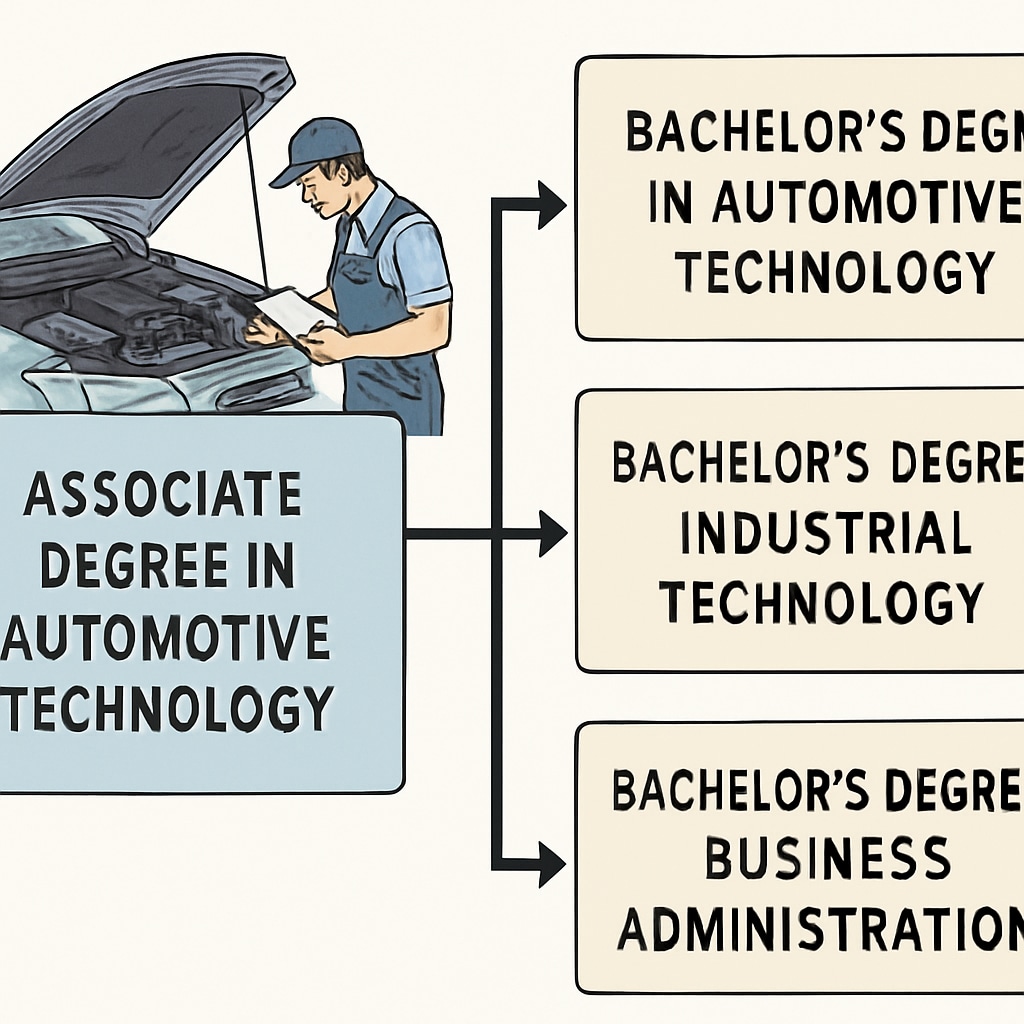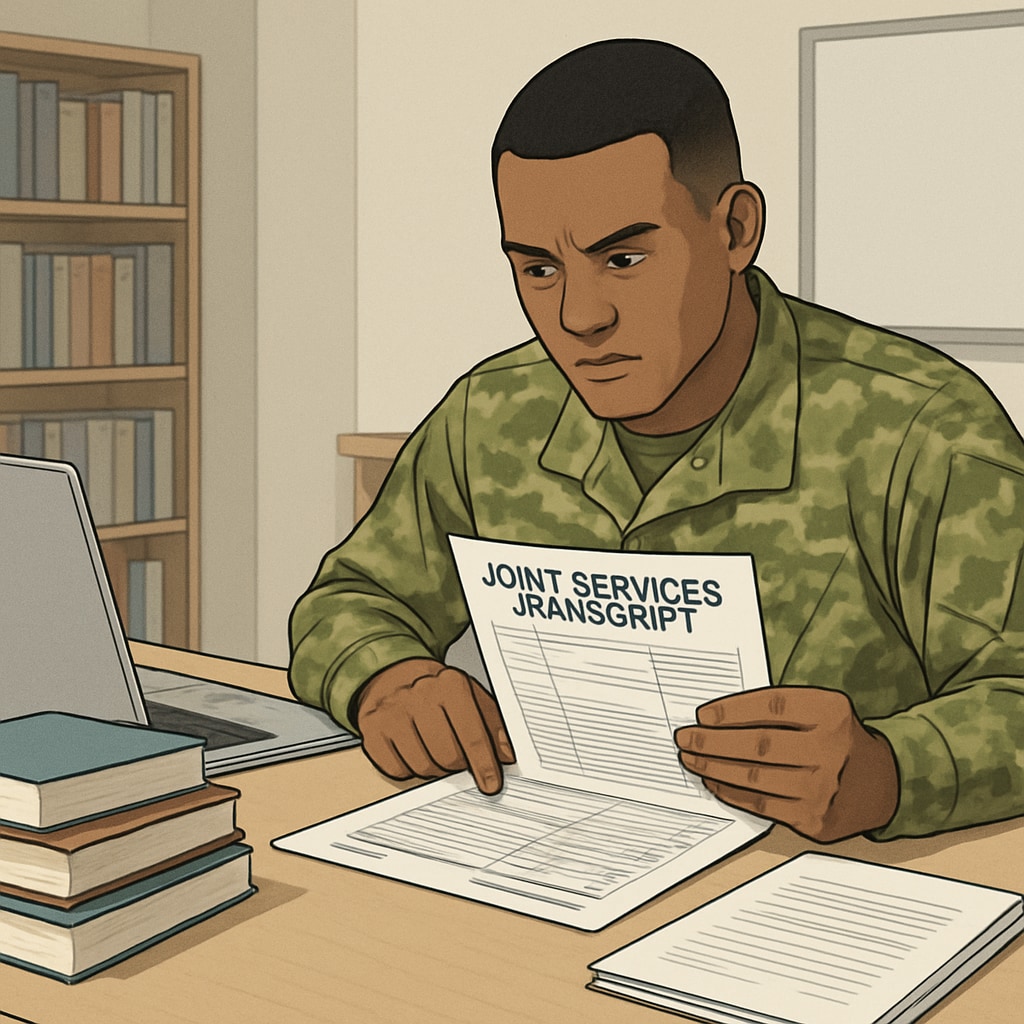For military personnel holding an associate degree in automotive technology, advancing to a bachelor’s degree can open new career opportunities both within and beyond the military. This transition can seem daunting, but with the right strategies for credit transfer, selecting compatible majors, and leveraging military-specific educational resources, the process can be seamless and rewarding.
Choosing the Right Bachelor’s Degree Program
When transitioning from an associate degree in automotive technology to a bachelor’s degree, the first step is selecting a compatible program. While automotive technology provides a strong foundation in mechanical and technical skills, it’s crucial to choose a bachelor’s program that aligns with your career goals. Common options include:
- Automotive Engineering: A natural progression, this degree focuses on advanced engineering principles and the design of automotive systems.
- Business Administration: Ideal for those aiming to manage automotive businesses or start their own enterprises.
- Industrial Technology: This program blends technical expertise with management skills, preparing you for leadership roles in manufacturing or technology sectors.
- Mechanical Engineering: Perfect for those wanting to expand their expertise into broader engineering disciplines.

Each of these programs can build on your existing automotive knowledge while introducing new concepts that will enhance your career prospects. Research universities and colleges that offer these programs and inquire about their credit transfer policies to maximize the use of your associate degree credits.
Maximizing Credit Transfer Opportunities
One of the key advantages of holding an associate degree is the potential to transfer credits toward a bachelor’s degree. Many institutions have articulation agreements, which ensure that specific credits from your associate program are accepted for advanced standing in your bachelor’s program. To make the most of this opportunity:
- Request a Credit Evaluation: Many universities offer a free evaluation to determine which of your credits are transferable.
- Understand Core Requirements: Identify which general education or major-specific courses you still need to complete.
- Leverage Military Training: Use your Joint Services Transcript (JST) to request additional credit for military experience and training.
According to the American Council on Education (ACE), military training can often translate into academic credits, significantly reducing the time and cost required to complete your degree. For more information, visit the ACE official website.

Utilizing Military-Specific Education Resources
As a military service member, you have access to unique education benefits that can support your transition to a bachelor’s degree. Key resources include:
- Tuition Assistance (TA): This program covers a portion of tuition costs for eligible service members.
- Post-9/11 GI Bill: Offers funding for tuition, housing, and other education-related expenses.
- Yellow Ribbon Program: For those attending private schools, this program helps bridge the gap between tuition and GI Bill benefits.
- Military-Friendly Schools: Many universities are designated as “military-friendly” and offer tailored support services for veterans and active-duty personnel.
By combining these resources with careful academic planning, you can significantly reduce the financial burden of earning a bachelor’s degree. For additional guidance, consider consulting your base’s education office or visiting the U.S. Department of Veterans Affairs website.
Setting Yourself Up for Success
Advancing from an associate degree in automotive technology to a bachelor’s degree requires careful planning, but the benefits are well worth the effort. Beyond the financial and academic strategies discussed, it’s important to maintain a clear focus on your long-term goals. Ask yourself:
- What specific career path am I aiming for?
- How can my military experience complement my education?
- What additional skills do I need to develop?
By answering these questions, you’ll be better equipped to select the right program and make informed decisions throughout your educational journey.
In conclusion, transitioning from an associate degree in automotive technology to a bachelor’s degree is not only possible but also highly advantageous for military personnel. With the right strategies for credit transfer, careful selection of compatible programs, and the use of military-specific education resources, you can achieve your academic and professional goals while minimizing obstacles. Start exploring your options today, and take the first step toward a brighter future.
Readability guidance: Short paragraphs and lists have been used to ensure clarity. The article includes transitional phrases and avoids excessive passive voice. The images are placed logically to complement the text.


